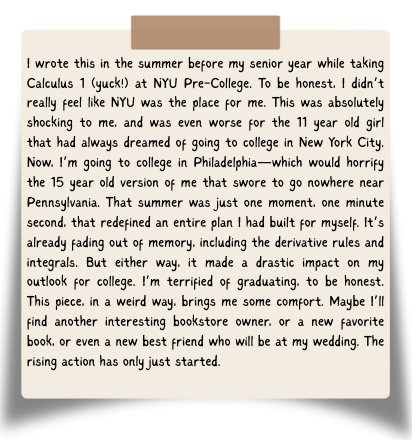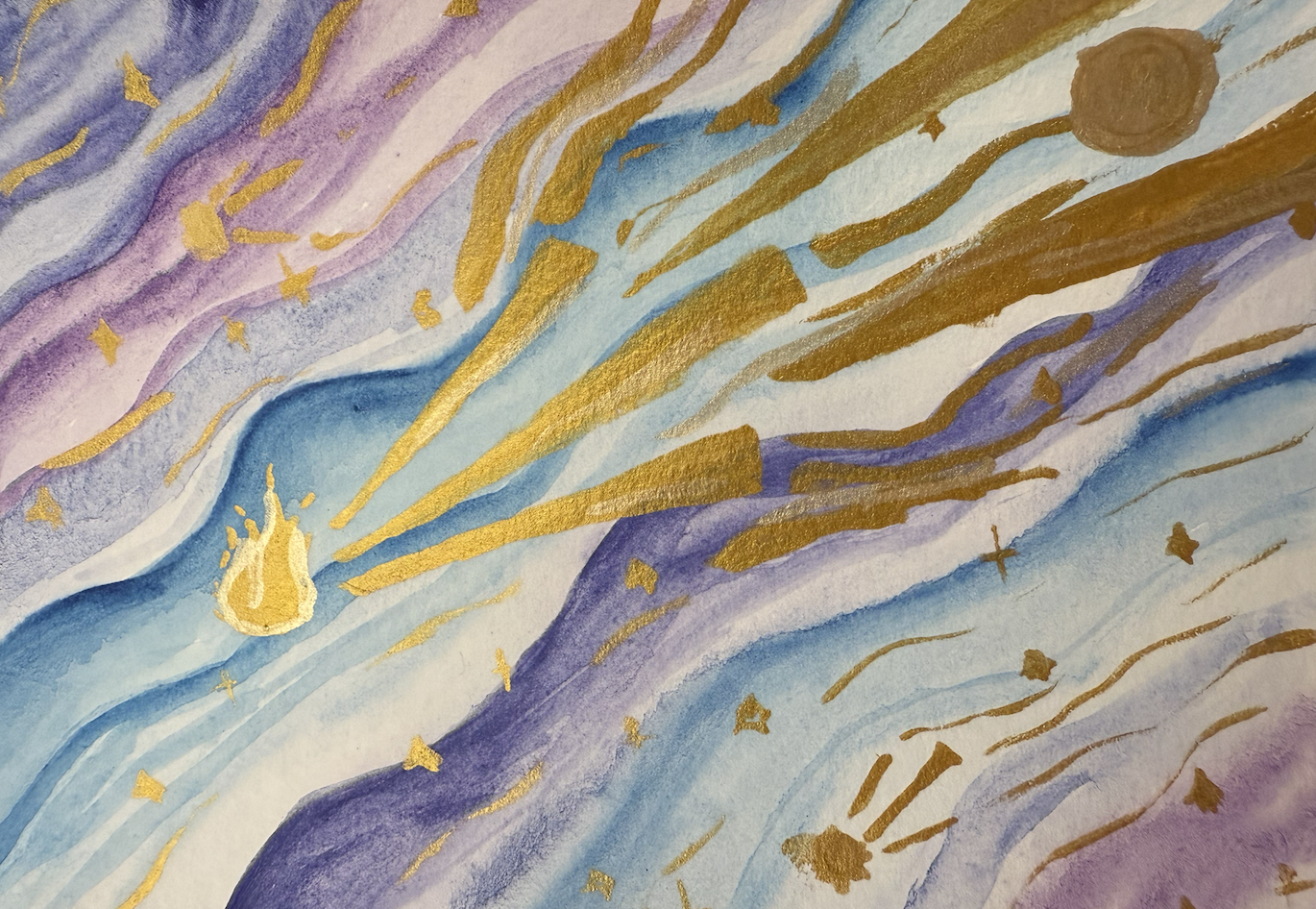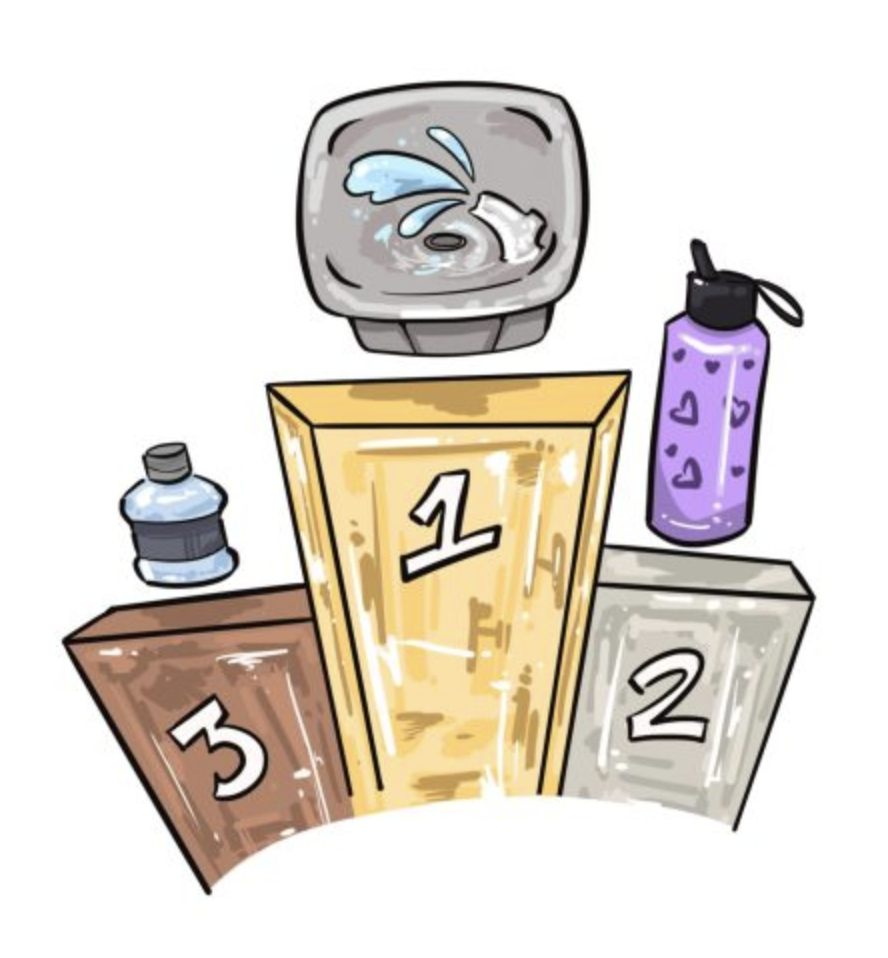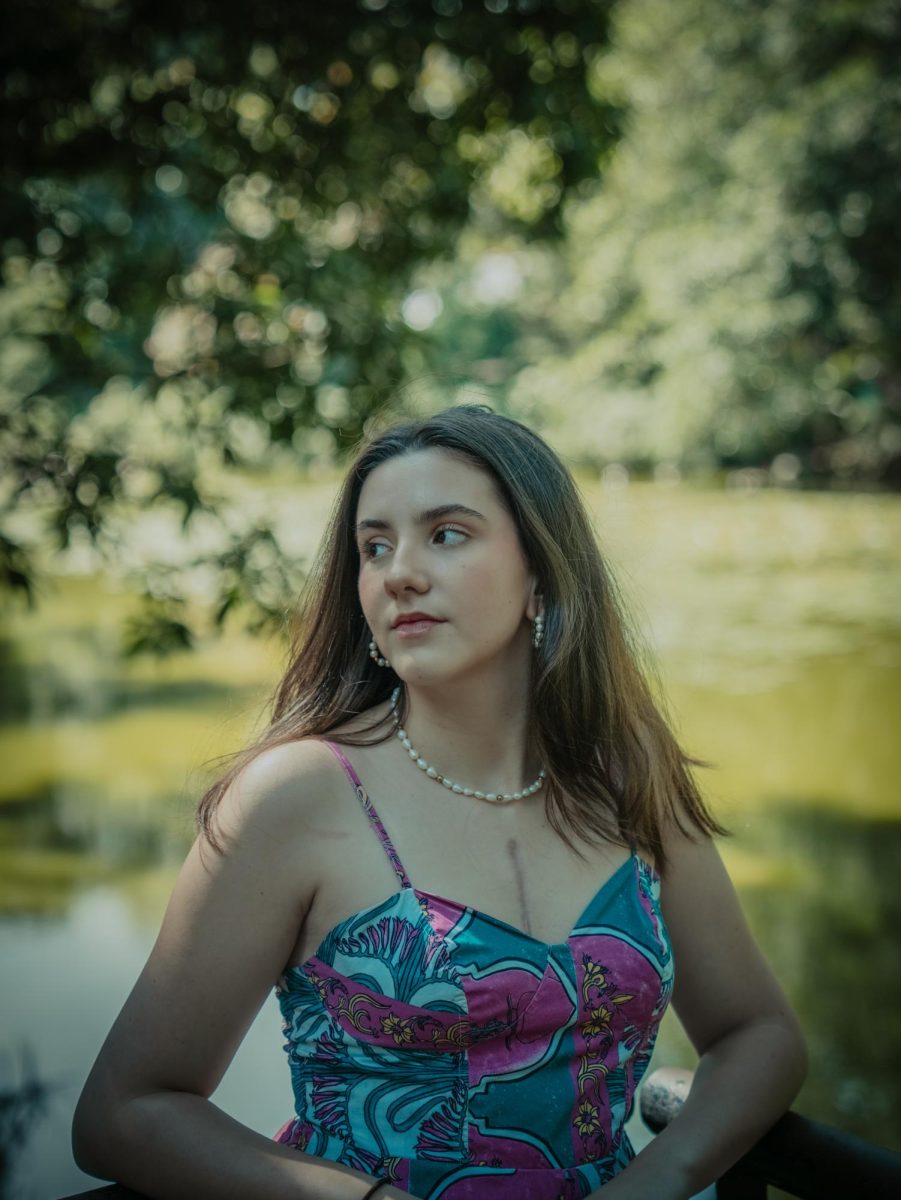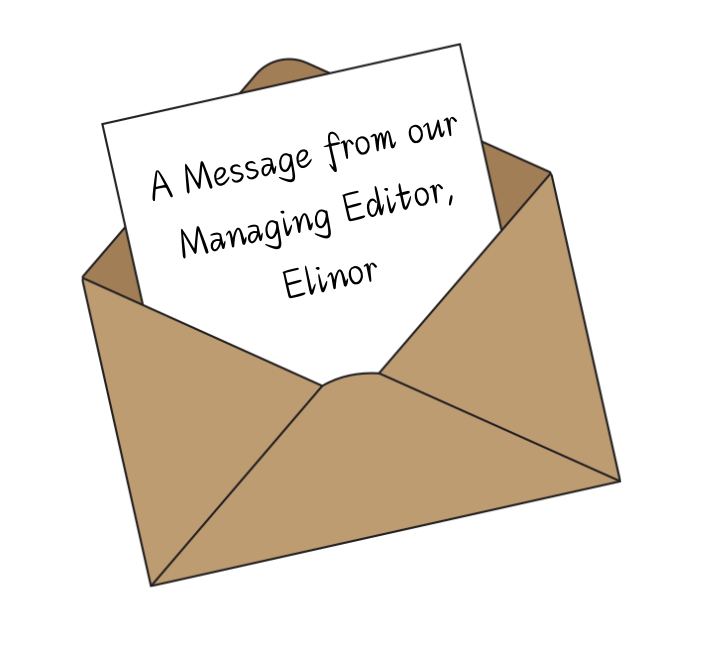Our senior editors were offered the chance to write a reflective essay to leave with the student body as they approach graduation. Below is Quinn’s reflection on the interconnectedness of humanity and the power of surprise encounters.
—
Dateline: Sometime in mid-July. Atlanta, Georgia.
I’m visiting my friend from middle school during that restless period between 8th grade and high school when the summer sticks to your skin like glue, and the anxiety in your stomach festers into nerves and excitement. We’re at a center of local stores and shops, encasing park chairs and grass where young children run around. The heat is suffocating, pressing down on us as we try to talk, and we end up in a bookstore desperate for solace. Fitting, as we became friends from our love of reading. But somewhere in the stress of growing up, we stopped reading as much, focusing hard on our legs extending a couple extra inches rather than the world we had built for ourselves in our endless imaginations. To summarize this brief crisis, I don’t know what to get.
After a few minutes, the owner walks over to tell us all about the books we should get, solely based on her observation of the aisles we had walked in. Watching, as our fingertips lightly grazed spines before hesitating. It’s a whirlwind from there, of books we should get and interesting things and fun little stories all wrapped up into one woman. I buy one book, one that I will read slowly over the course of three years, digesting every single chapter. Occasionally, I put it down. This book is the kind that calls for you, draws you in–you must read it when it decides so. Dedicate your whole self to me, it says, and look away if you can’t. And in a sense, the woman, to me, is a part of the book’s story too. The same way a friend introduces two introverts to each other. Where did she find the confidence, the shamelessness to purposely include herself into my life, even for just a few minutes? And why, of all things, did our thirty minute interaction linger with me for so long?
Perhaps it was not a simple boost of confidence. Perhaps, she found something interesting within me, oddly enough. Leslie Jamison, in her essay “Baggage Claims,” finds out a previously annoying woman on a layover has been injured after being attacked in New York. She reflects: “I find myself reframing everything I’ve seen her do,” and later announces, “She has a story and now I’m part of it.” Did that bookstore owner look at me and think, this girl has something interesting about her? This boring 13-year-old, who can’t really hold a conversation–how interesting.
But I think back to when Jamison speaks to a man on the plane, who she finds boring at first. As he speaks more, she gets more and more involved with his story, listening to what he has to say; she weighs whether or not she is genuinely interested in his story. She searches for a short summary of his being, as if he is a written story on a piece of paper. She cannot and will not find it, because as Jamison puts it herself: “his life…holds more than I could ever possibly see” (2024). He is more than just a story; he is a human, just like her. In a similar vein, the woman from before did not owe her a story, and the narrator should have helped her without searching for an interesting part of her life. This point is driven home when she finds out her injury was from her simply dancing, not a tragic accident. A simple, ordinary reason. Ultimately, the narrator should have helped the stranger anyway, simply for being another ordinary person. This is what connects us all, an interaction of kindness.
So, maybe the bookstore owner was distinctly aware of this–this connection between us as two bodies simply standing on the same wooden flooring at the same point in time. She wanted to make every little moment of her life grand. If we are already stuck in the stories of everyone we come in contact with, why not make yourself an active participant? Why just stand there and be okay with only being seen in a freeze-frame, when someone pauses a movie? This lights the fire for a theory in my head; do we have to interact with them? Will the story change just because we are there?
The book the woman gave me, A Tale for the Time Being by Ruth Ozeki, seems to support this answer; the bookstore owner was simply all-too aware of our places in the universe. But it also fans the flames of curiosity. The book revolves around the main character, Ruth, as she learns the story of a young girl, Naoko or “Nao,” through reading the washed-up diary of the girl. In it, Nao adopts Dogen Zenji’s definition of a “time being,” as a noun–not a phrase: “To grasp this truly, every being that exists in the entire world is linked together as moments in time, and at the same time they exist as individual moments of time. Because all moments are the time being, they are your time being” (Ozeki 2013). It creates the sense that as long as we exist, we are connected. We are all background characters in the grand scheme of the universe. Where one might think that this means we have little to no impact, it is also important to note that we exist as “individual moments.” All of us have our own stories, centering us as the main character. These two concepts coexist, painting everyone to ever exist as both a main character and a background character.
Frankly, I find this idea completely terrifying in practice. It’s an oxymoron and a paradox and undefinable all wrapped up into one little piece of thought. In one instance, we have essentially no effect on anything, and in the other, every little decision we make drives the plot. Not just of our own lives, but someone else’s; background characters can be the catalyst to a massive event. Imagine, you’re ordering at a coffee shop, and the cashier is undergoing a complete revelation, experiencing the climax of their own story. By simply existing at the same time and space as them, you’ve accidentally altered a crucial part of their narrative. Do you ask them how they’re doing? Are you having an off-day, and snap a little too hard? Do you tip well? These questions, while once meaningless in the scheme of celestial infinity, become all too important to someone else’s story. Then again, in roughly 7 billion years, the sun will explode, and everything on Earth will cease to exist, and the universe will continue to move on.
I don’t think we ever leave the universe entirely, though. Even if we have little impact in the grand scheme of things, someone or something else might. Aaron Freeman in his short speech, “Why You Want a Physicist to Speak at Your Funeral,” says that we never truly leave the Earth: “You want the physicist to remind your sobbing mother about the first law of thermodynamics; that no energy gets created in the universe, and none is destroyed…According to the law of the conservation of energy, not a bit of you is gone; you’re just less orderly.” Even when we die, we still play an important role in the background of a story. Our energy is simply converted to something else. And what if that something else is a driving force in a big, somewhat important event?
Even if it’s not, our little presence still is important. I think back to my 10th grade Chemistry class. Loosely, I remember isotopes are defined as being a variation of a chemical element with different numbers of neutrons. One single stray neutron can create an isotope. And from that single stray neutron, a radioactive isotope that can do a million different things that 15-year old me absolutely could not understand. Protons define the element (“the atomic number”); the number of protons is the difference between Helium and Gold. Electrons decide how it reacts. The difference between 1 and 2 of any of these drastically affects the big picture. If we are all microscopic pieces of the atom that is the universe, then one thing can completely alter the element that is our world.
I collected these thoughts in my head as I grew into my legs and returned to that endless world. Filling questions I had accumulated from a simple bookstore with science classes I hated, building up ideas and concepts of interlinked creations. In my mind, Jamison, Ozeki, and Freeman combined together to craft this picture of the world, or at least, my understanding of it. In which, we have no choice but to be an active participant in the universe forever. Even after we die, our energy is converted into something new, but was, at one point in time, inherently ours. This is the human experience–or rather, the experience of existence. What do I do with this idea?
Honestly, I have no clue.
Of course, there are foggy hypotheses and observations in my brain, but they’re scattered and fly in and out. It took years for me to even comprehend the vastness of space and time, and I still barely understand it. Someday, I might. But, I have yet to figure out the application. Regardless, the mere inklings of this thought came to me because of a simple moment in which a bookstore owner just recommended a story. She will always linger in my brain, right next to the place I keep my understanding of what it means to exist. I think I just haven’t met the catalyst to know where to put this idea, a missing piece of the puzzle.
Do you know? Have you met your bookstore owner yet?
